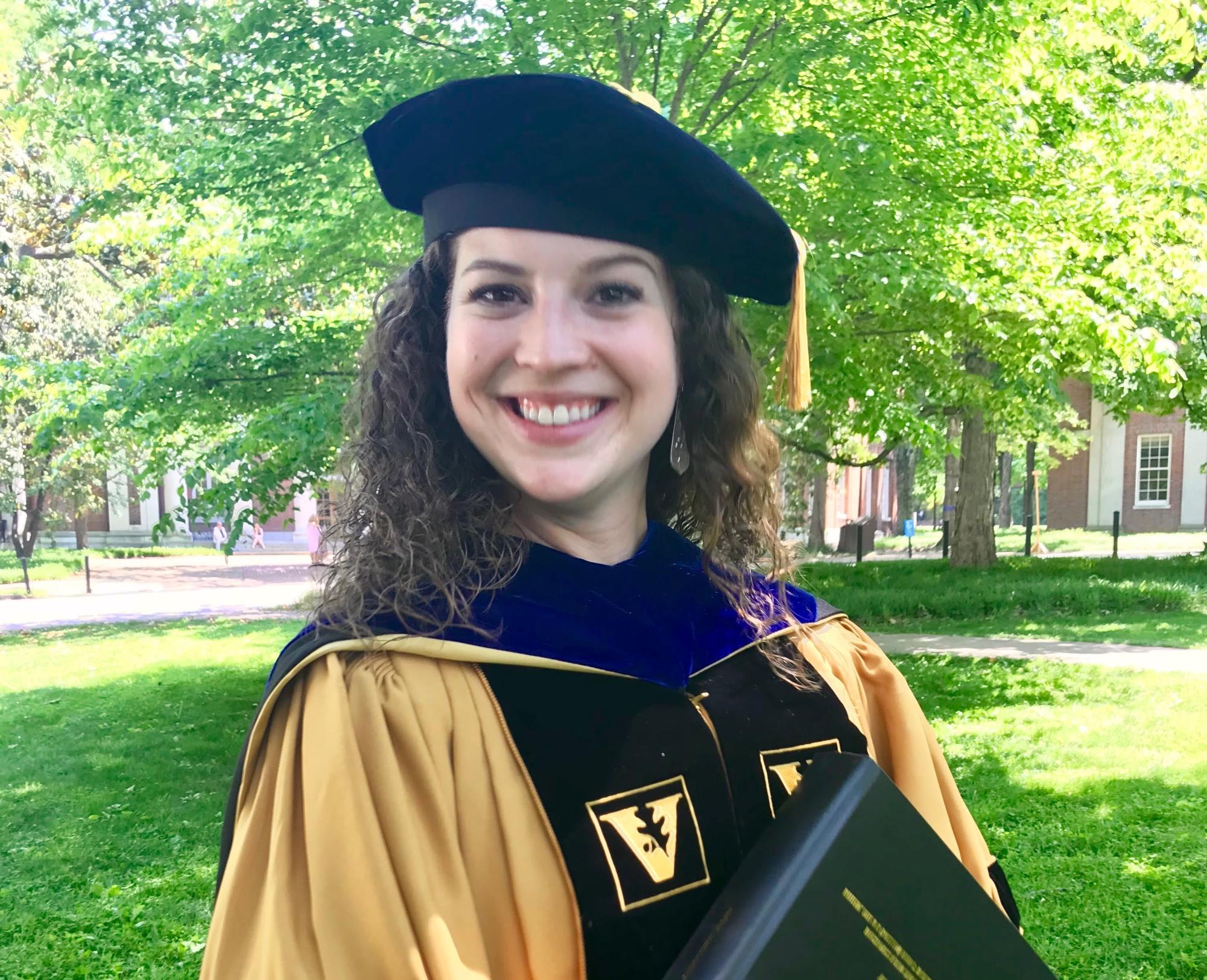The Vanderbilt and Nashville communities continue to remember late alumna Alyssa Lokits, who earned her Ph.D. in neuroscience in 2017. Lokits was killed on Oct. 14 while on an afternoon run in Nashville, prompting global awareness and advocacy efforts for women’s safety.
In the wake of her passing, Lokits’ family created the Instagram account @runforalyssa to honor her memory and organize runs across the world in solidarity. As of publication, the account has over 12,500 followers. Nearly 500 Nashvillians ran in Lokits’ memory on Oct. 21, and people across the world have run and walked under the tag #runforalyssa over the past two months. Abby Lokits, Alyssa’s sister-in-law, said plans are in progress to hold a women’s safety event at Vanderbilt in the spring.
“Alyssa’s loss leaves a hole not only for her close family and friends but for every community who had the opportunity to experience her brilliance and kindness,” the Lokits family wrote in a statement to The Hustler. “She will be greatly missed by all who had the privilege of knowing her and working alongside her.”
Scholarly work
Upon arriving at Vanderbilt in 2012 after earning her bachelor’s degree from the University of Kansas, Lokits rotated in the labs of Dr. Heidi Hamm — professor of pharmacology — and Dr. Jens Meiler — distinguished research professor of chemistry. Though doctoral students typically select one lab for their dissertation topic, Hamm said Lokits’ interests spanned both.
According to Hamm, Lokits opted to bridge experimental and computational work across the two labs, applying techniques learned from Meiler and Dr. Peter Stadler, director of the University of Leipzig’s Interdisciplinary Center for Bioinformatics, to explore the evolution of G-proteins. Hamm, Meiler and colleagues uncovered the activation mechanism for G-proteins in 2011.
“Her main work was a collaboration with [Meiler’s] lab, my lab and Stadler’s lab, basically using the most modern methods to put together genomes [of G-proteins],” Hamm said. “They were sitting there, but nobody had looked. She did the painstaking work of going through — and you have to reassemble the genome from tiny pieces — and [doing] that work. She really learned all those methods.”
Hamm praised Lokits’ “very original” work for its interdisciplinary use of varied methods. Lokits co-authored five research manuscripts with Hamm, Meiler and Stadler from 2014-18, including publications in Biochemistry and the Journal of Biological Chemistry.
Alyssa Lokits in Light Hall defending her thesis on G-protein signaling mechanics, as photographed on May 1, 2017. (Photo courtesy of Abby Lokits)
Beyond her intellectual promise, Lokits was widely loved for her character, according to Hamm and Meiler.
“She was always upbeat, always smiling, always willing to give a hand to everybody in the lab,” Hamm said. “People loved her.”
Meiler described her as an “absolute joy” to work with and someone who uplifted others.
“She was one of those people who not only did great science but also was the glue of the group,” Meiler said. “She held the team together.”
Hamm further praised Lokits’ ambition and self-assuredness.
“She knew what she wanted. That was the really good thing about her. She knew exactly where she was going to end up, and she did everything to make that happen,” Hamm said. “She got the exact job she wanted to get after she defended her thesis, and she was happily — and successfully — doing that job in Nashville.”
The Meiler lab at a group retreat in Pigeon Forge, Tenn. (Photo courtesy of Jens Meiler)
Evidencing this ambition, Meiler fondly recalled when Lokits and two peers “teamed up” to request permission to apply for and attend a protein science conference in Barcelona despite having just attended a similar one.
“They insisted, ‘We really need to go to this conference, there are so many excellent speakers.’ I said, ‘No, you guys only want to go there because it’s in Barcelona,’” Meiler said. “Ultimately, they collected enough funds to go, and I helped them pay some of the costs, and they made it happen. That’s Alyssa: ‘I want to go, and I’m going to make it happen.’”
On and beyond campus
Lokits worked as a SyBBURE Searle Graduate Fellow from 2016-17 while completing her Ph.D. SyBBURE Director Jon Ehrman, assistant professor of biomedical engineering, praised Lokits’ work ethic, compassion and reliability.
“Working with Alyssa was rewarding as she was willing to put all of herself into everything that she did,” Ehrman said. “She showed that she cared deeply about the students, her peers and everyone around her through her willingness to engage with people of all personalities and backgrounds.”
Jad El Harake (B.S. ‘18) joined SyBBURE as an undergraduate right before Lokits defended her thesis but said that, even in the short time he knew her, he felt she embodied “the spirit of SyBBURE.”
“She was so energetic and excited about science and also about silly, cool, random things. In general, she was a total crusher — when she found something she was excited about, she would dive in,” El Harake said. “She was learning Arabic when I met her, and I think she taught herself a bunch of other languages, too, on top of doing a Ph.D. and other hobbies.”
Her family echoed these sentiments, calling her “a lifelong learner” whose hobbies included “countless projects and entrepreneurial pursuits.”
“From home renovations to art and cooking to curriculum development, she was remarkable in every sense, and lived her life full of curiosity and adventure,” their statement to The Hustler reads.
El Harake said Lokits’ energy left the strongest lasting impression on him.
“She was on the front lines of the [SyBBURE summer] house competition and got everyone else into it because of how psyched she was. I remember she was really empathetic and a great listener, and she was just a ray of light,” El Harake said. “It was hard to stay upset about something after talking to her.”
Former SyBBURE Director Chrissy Marasco described Lokits as an integral part of the program’s community.
“She gave her time and energy to help train and mentor the next generation of scientists. She offered ideas that shaped the program as a whole. She rooted for students in the face of challenges, shared her own hurdles and, in doing so, modeled what effective community in and around research should look like,” Marasco said.
The current SyBBURE cohort participated in a walk-out from Featheringill Hall to Robinson Research Building, where Lokits conducted her research, on Nov. 12 in her honor.





